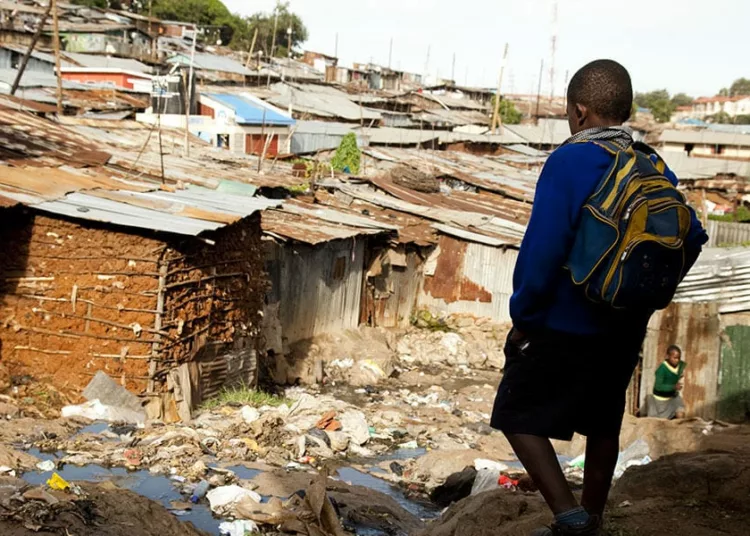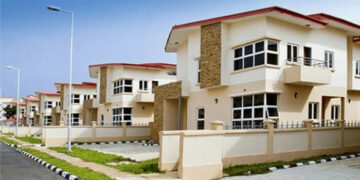Poverty is a real crisis issue that affects millions of people around the world. It was for this reason that more than 100,000 people came together in Paris, France, on October 17, 1987, to identify with people suffering in its shackles.
It is an international day to raise awareness about the need to end global poverty in all its forms and manifestations. It’s a day to acknowledge the suffering of people who have to deal with the consequences of poverty — hunger, violence, and homelessness.
The international community uses the platform to promote dialogue and understanding among people below the poverty line, the communities that live in the world community at large. It provides an opportunity to acknowledge the struggles of poor people and gives them a platform and audience to have their issues, needs and concerns heard.
However, we are concerned about the effects of the coronavirus pandemic, severe weather conditions and the Russia-Ukraine war, the threats they pose to the world at large with a global food crisis, and we’re now facing the most severe food shortage ever seen since World War II. These make it difficult, if not impossible to purchase food, and as the circumstances persist, many more communities and people experience shortages in their food supply. The poor are hardest hit when access to food dries up, and where available, the costs are rising, heightening the struggle.
What is more, times are really hard, and many families today find it difficult to feed, not to mention the issue of having a balanced diet. What we have as a result are malnutrition, starvation and chronic health issues which are a serious and potentially life-threatening reality for children living in poverty. Food security has become a more severe risk for the poor.
The proportion of Nigerians who are faced with the problems of inadequate food (unbalanced) to eat, clothes to wear, and befitting shelter as well as sustainable development is ever increasing. It is more disheartening that Nigeria is endowed with abundance of natural resources and yet have to contend with these issues in a manner that suggests unseriousness.
From all indications, poverty is growing faster than development. For instance, the latest price of foodstuffs and other consumables are a clear indication that inflation will plunge more Nigerians into disastrous poverty. More Nigerians are sliding into poverty on a daily basis.
Significantly, in the case of Nigeria, poverty is the most pervasive phase of the nation’s development. Every year and time, Nigerians are inundated with the huge amounts of monies released to address the elusive phenomenon-poverty, yet at every glance, it seems to be growing stronger.
This newspaper observes that despite the federal government’s slogan of ‘lifting 100 million Nigerians out of poverty in 10 years’, Nigeria has maintained the infamous position as the World’s Poverty Capital, with an estimated 93.9 million people currently living below the poverty line. The federal government has, however, argued that the planned lifting of 100 million Nigerians out of poverty by 2030 is attainable, if stakeholders play their expected roles effectively. But who is to do what exactly? It appears the government is just passing the buck made worse by its tendency to condone the hydra-headed monster called corruption.
In 2019, the federal government had rejected the 2018 statistics which solidified Nigeria’s position as the poverty capital of the world despite world leaders such as the former Prime Minister of the United Kingdom, Theresa May, who quoted statistics to talk about the reality of poverty in Nigeria. We were then told that the Buhari administration would focus on eradication of poverty in his second term in office. It’s now seven months to the end of the President’s second term, and there’s no tangible evidence to show that things are better today than what they were in 2019. If anything, they are worsening with the pervasive insecurity and the ravaging effects of flood across the country
Poverty can be eradicated. It is not rocket science. It is not an impossible task. One of the ways of eradicating it is including poor people in the conversation not talking at them. That, combined with the promotion of growth and employment opportunities, addressing gender inequalities, and improving public facilities, will help to eradicate poverty from the world.
We call on the federal government to ensure that the modalities for its poverty eradication programme are entrenched and meticulously implemented, so that a reasonable number of Nigerians can be lifted out of poverty at the end of the day. The government should also make greater investments in the rural economies which actually affect the larger population.




